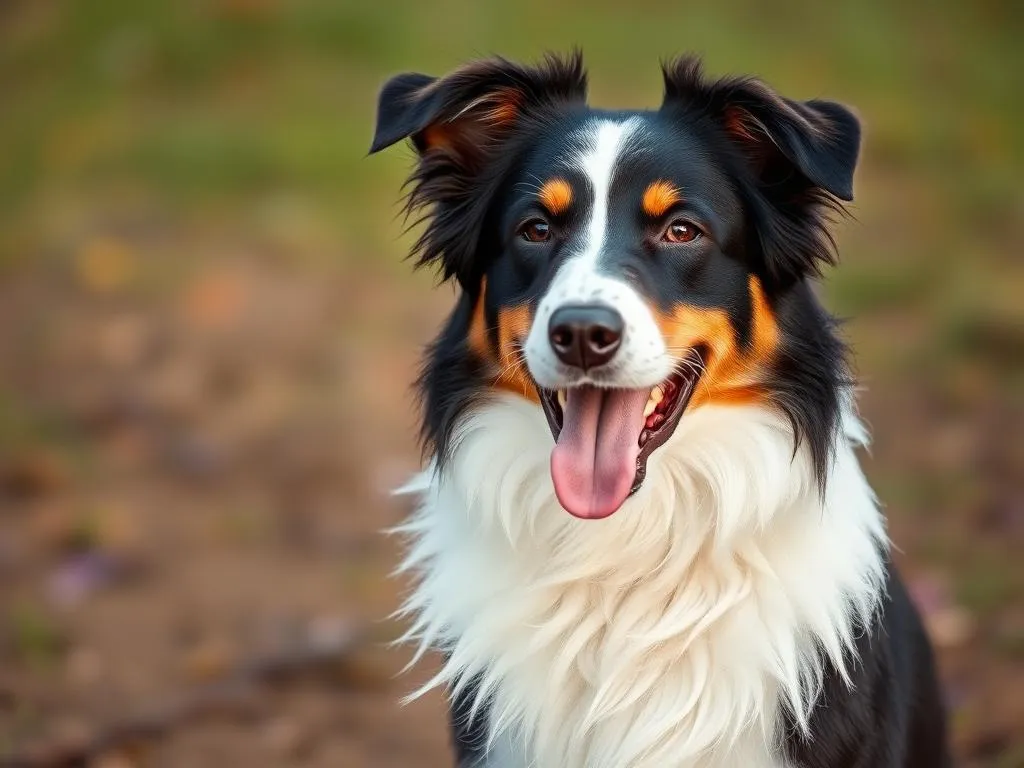
Introduction
Understanding different dog breeds is crucial for potential dog owners. Each breed has its unique characteristics, care requirements, and personality traits that can significantly affect the owner’s lifestyle and compatibility with their future furry friend. One breed that stands out for its intelligence, agility, and strong work ethic is the Border Collie. This article dives deep into the world of Border Collies, providing insights into their history, physical traits, temperament, care needs, training, health considerations, and what it’s like to live with this remarkable breed.
Overview of Dog Breeds
Dog breeds are groups of domestic dogs with specific characteristics and traits that have been selected over generations. Each breed has been developed for particular purposes, whether that be herding, guarding, companionship, or hunting. Understanding the variety of dog breeds available is essential because it allows prospective owners to choose a breed that aligns with their lifestyle, preferences, and environment.
Dog breeds can generally be classified into several categories:
- Working Dogs: Bred for specific jobs such as guarding or pulling sleds.
- Herding Dogs: Trained to manage livestock, like the Border Collie.
- Toy Dogs: Smaller breeds primarily kept as companions.
- Sporting Dogs: Designed for activities like hunting and retrieving.
Selecting the right breed can lead to a more fulfilling relationship between the dog and its owner, ensuring both parties thrive together.
The Border Collie: An In-Depth Look
History and Origins
The Border Collie has a rich history rooted in pastoral work. Originating from the border region between England and Scotland, these dogs were developed for their herding capabilities. The breed’s ancestors were skilled at managing sheep, showcasing remarkable intelligence and obedience. Over time, these working dogs have transitioned into family pets, but their herding instincts and high energy levels remain prominent.
The evolution of the Border Collie into a beloved family companion has not diminished its working drive. In fact, many still participate in competitive herding trials, demonstrating the breed’s prowess and agility.
Physical Characteristics
Border Collies are known for their striking appearance and athletic build. Here are some key physical traits:
- Size and Weight: Typically, they stand between 18 to 22 inches tall at the shoulder and weigh between 30 to 45 pounds.
- Coat Types and Colors: Their coat can be either smooth or rough, with colors ranging from black and white to blue merle, sable, and tri-color.
- Distinctive Features: They possess expressive eyes and erect or semi-erect ears, which add to their alert appearance. Their body is well-proportioned, reflecting their agility and endurance.
These physical traits complement their energetic and intelligent nature, making them one of the most versatile breeds.
Temperament and Personality
The Border Collie is renowned for its exceptional intelligence and eagerness to please. Here are some notable traits:
- Intelligence: Often cited as one of the smartest dog breeds, Border Collies thrive on mental challenges and problem-solving tasks.
- Energy Levels: They are highly energetic and require plenty of physical activity to stay happy and healthy.
- Social Behavior: Border Collies tend to be friendly and affectionate with their families but can be reserved with strangers. They generally interact well with other pets, especially if socialized early.
While they are known for their positive traits, they can also exhibit behaviors like herding tendencies, which may lead to chasing after small children or other pets, making early training essential.
Care Needs of Border Collies
Nutrition
A well-balanced diet is crucial for the health of a Border Collie. Here are some dietary recommendations:
- Recommended Diet: High-quality dog food that meets the nutritional standards for their age, size, and activity level is essential. Look for foods rich in protein and omega fatty acids for a shiny coat and healthy skin.
- Common Dietary Issues: Obesity can be a concern if not managed properly, as these dogs can easily become overweight if their diet is not monitored closely.
Exercise Requirements
Border Collies are not dogs for the couch potato. They require substantial exercise:
- Daily Exercise Needs: Aim for at least 1-2 hours of vigorous daily exercise. This can include walks, runs, and playtime.
- Types of Activities: Agility training, frisbee, fetch, and even swimming are excellent activities that stimulate both their minds and bodies.
- Importance of Mental Stimulation: Puzzle toys and training exercises can help engage their intelligence, preventing boredom and related behavior issues.
Grooming
Grooming is a significant aspect of caring for a Border Collie:
- Grooming Frequency: Depending on the coat type, Border Collies may require brushing 1-3 times a week to reduce shedding and matting.
- Seasonal Considerations: They typically shed more heavily during spring and fall, necessitating more frequent grooming during these times.
- Hygiene Tips: Regularly check their ears and teeth and bathe them as needed to maintain overall hygiene.
Training a Border Collie
Basic Training Techniques
Training is crucial for a Border Collie due to their intelligence and energy:
- Early Socialization: Introduce them to various environments, people, and pets early on to foster good behavior.
- Training Methods: Positive reinforcement techniques, such as treats and praise, work best for this breed, as they respond well to encouragement.
Advanced Training and Activities
The potential for advanced training is vast with Border Collies:
- Agility Training: Many Border Collies excel in agility competitions, showcasing their speed and coordination.
- Herding Instincts: These dogs can be trained to herd livestock, which utilizes their natural instincts and provides mental stimulation.
- Fun Activities: Engaging in interactive games and tasks keeps them mentally sharp and physically active.
Common Behavioral Issues
Like any breed, Border Collies can face challenges:
- Typical Challenges: Excessive barking, chasing, and obsessive behaviors can occur if they are not adequately exercised and stimulated.
- Solutions: Consistency in training, ample physical and mental activity, and addressing behavioral issues promptly can help mitigate these problems.
Health Considerations
Common Health Issues
Border Collies are generally healthy, but they can be prone to specific health problems:
- Hip Dysplasia: This genetic condition can lead to arthritis and mobility issues.
- Eye Problems: Conditions like Collie Eye Anomaly (CEA) can affect their vision.
Regular vet check-ups are crucial to monitor their health and catch any issues early.
Preventive Care
Preventive care is essential for the longevity of your Border Collie:
- Vaccination Schedules: Keep them up to date with vaccinations and parasite prevention.
- Spaying/Neutering: Consider spaying or neutering to prevent unwanted litters and reduce certain health risks.
Living with a Border Collie
Suitability for Families
Border Collies can make wonderful family pets:
- Interactions with Children: They are typically gentle and protective around children, often forming strong bonds with them.
- Ideal Living Environments: While they can adapt to various living situations, they thrive in homes with ample outdoor space for exercise.
Time Commitment and Lifestyle Considerations
Owning a Border Collie requires a notable time commitment:
- Training and Exercise: Expect to invest time daily in training, exercise, and socialization.
- Lifestyle Changes: Potential owners should consider lifestyle modifications to accommodate the breed’s needs, such as more outdoor activities and structured routines.
Conclusion
In summary, the Border Collie is an exceptional breed known for its intelligence, energy, and affectionate nature. While they require a significant investment of time and energy, the rewards of companionship and loyalty are immeasurable. Prospective owners should carefully consider their ability to meet the breed’s needs, ensuring a happy and fulfilling relationship for both the dog and its owner.
FAQs about Border Collies
-
Do Border Collies shed?
Yes, they do shed, particularly during seasonal changes. Regular grooming can help manage shedding. -
Are they good with kids?
Generally, yes. Border Collies are friendly, energetic, and protective, making them great companions for children when properly socialized. -
How much exercise do they need?
Border Collies require at least 1-2 hours of vigorous exercise daily to stay healthy and happy. -
Can they live in apartments?
While they can adapt to apartment living, it’s crucial to provide them with plenty of exercise and mental stimulation. -
What are their common health issues?
They can be prone to hip dysplasia and eye problems, emphasizing the importance of regular veterinary care.
With their dynamic personalities and remarkable intelligence, Border Collies make fantastic companions for active individuals and families willing to invest in their care and training.









